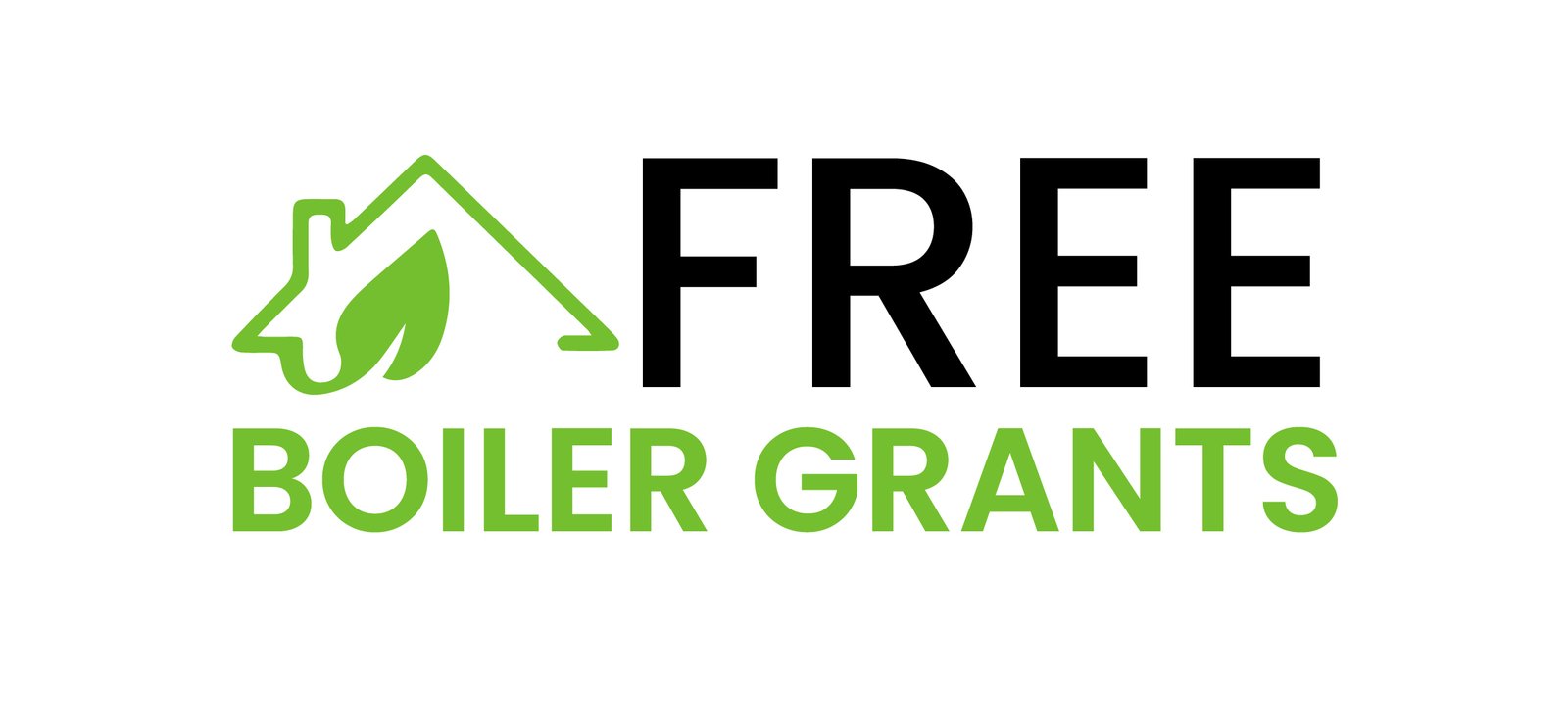Eligibility Criteria for Free Boiler Grants
Do landlords qualify for free boiler funding?

UK landlords can receive free boiler grants through the Energy Company Obligation (ECO) scheme, which focuses on improving rental property energy efficiency. The initiative provides landlords with free boiler replacement services, which benefits both their property and their tenants. The eligibility requirements for free boiler funding consist of tenant benefits and property type and existing heating system status. The acquisition of a free boiler grant enables landlords to decrease their energy expenses while raising their EPC scores and meeting regulatory standards. The guide outlines the requirements for participation alongside the advantages and steps to obtain this funding support for landlords. Read the following information to determine your eligibility and the application process if you are a landlord.
ECO Boiler Grant System: A Key Support Program for Landlords
The Energy Company Obligation (ECO) scheme operates as a government-supported program that focuses on improving energy efficiency standards in UK residential properties that landlords manage. Through this funding, landlords can obtain new, efficient boilers that decrease both their utility expenses and environmental impact. Through this scheme, the landlords can enhance their properties’ energy performance, which leads to mutual benefits for themselves and their tenants through reduced costs and regulatory compliance.
What Is the ECO Scheme?
The ECO scheme operates as a government-established program that forces energy suppliers to finance home energy efficiency improvements. The program delivers heating improvements to vulnerable and low-income households so they can obtain better heating systems. The scheme uses its funding to replace boilers in order to decrease both fuel poverty and environmental carbon emissions. Through this program, landlords can obtain support to upgrade their properties in order to achieve energy efficiency standards.
How Does the Scheme Work?
The scheme operates through a system where major energy suppliers must allocate funds to improve heating systems that are not efficient. The assessment process by approved installers determines eligibility for boiler replacement using new energy-efficient models that cost little or nothing to the property owner. The funding includes installation costs, which enables both tenants to get reduced energy bills and landlords to meet government energy requirements.
Who Funds the Scheme?
The ECO scheme receives its funding from major UK energy suppliers, including British Gas and E.ON, and EDF. The suppliers who participate in this program dedicate their funds to grant distribution because it fulfills their national energy efficiency requirements. The government manages the scheme through the proper distribution of funds to enable qualifying households and landlords to obtain free or subsidized energy-saving measures, including boiler replacements.
Is It Available for All Landlords?
The ECO scheme provides benefits to specific types of landlords. The scheme’s eligibility criteria include both energy efficiency standards of properties and the presence of government benefit recipients. The scheme directs its support toward properties that house vulnerable tenants to fight against energy poverty. The funding for insulation projects requires landlords to fulfill specific requirements. Landlords who fail to fulfill the requirements must pay part of the installation expenses.
How Can Landlords Benefit?
Through the ECO scheme, landlords receive substantial benefits because they can get their property heating system upgraded at no cost or minimal expense. The installation of contemporary boilers enhances energy efficiency, which simultaneously lowers tenant heating bills and boosts the EPC rating of the property. The property becomes more appealing to prospective renters through this improvement. The implementation of energy efficiency laws by landlords protects them from penalties and leads to sustained financial savings.
Eligibility Criteria for Landlords
The ECO boiler grant program demands that landlords to fulfill two requirements, including property type and tenant status, and current heating system condition. Landlords must verify that their rental properties meet energy efficiency standards while their tenants receive appropriate benefits to qualify for ECO boiler grants. The funding becomes available only after landlords complete any necessary insulation work. The established criteria help landlords determine whether they should apply for a grant. Knowledge of these requirements leads to an easier application process and improves the probability of receiving approval. The eligibility requirements enable landlords to both boost their property energy efficiency standards and decrease heating expenses for their tenants.
What Type of Properties Qualify?
Rental properties that hold EPC ratings between D and G are the only properties that can participate in the ECO scheme. New boiler installations need properties to meet specific insulation standards. The ECO scheme enables participation from both flat and house and bungalow properties but specifically bars all commercial properties from eligibility. The evaluation of heating system performance helps determine whether property owners need to improve heating system efficiency. Insulation standard compliance verification must happen before scheme application becomes possible. Landlords need to schedule an EPC check to determine their property rating before starting the process.
Do Tenants Need to Be on Benefits?
The ECO scheme extends its services to landlords who have tenants receiving particular government assistance programs. The ECO scheme accepts government benefits such as Universal Credit, Pension Credit, Child Tax Credit, Housing Benefit, and Income Support to qualify tenants. The program serves to assist families with limited income in reducing their power bills. The absence of benefits from tenants forces landlords to explore various funding alternatives during boiler replacement. Grant providers offer consultation services to landlords who need alternative funding sources when their tenants fail to qualify for benefits. Maintaining records about tenant benefits creates a more efficient application process,s which results in shorter delays.
Are There Any Income Requirements?
The scheme primarily focuses on benefits for tenants, but specific grants require household income checks. The program needs tenants to show their income meets specific requirements. The established income thresholds enable the program to distribute resources toward genuine beneficiaries. Properties situated in low-income or fuel-poor areas may obtain grants regardless of whether their tenants do not qualify for benefits. The evaluation of local eligibility requirements enables landlords to verify whether their properties satisfy income-based grant requirements. The assessment criteria for income vary between different regions, which enables additional properties to meet the requirements.
Can Landlords with Multiple Properties Apply?
The ECO application requires each rental property of a landlord to show its own independent qualification. The qualification of one property stands alone from other properties in the same situation. Each property requires its own evaluation process that checks benefits for tenants and examines insulation standards and heating system condition. Each property needs its own documentation from landlords to prevent application denials. Using an ECO-approved installer enables you to simplify the application process when working with multiple properties.
Do Landlords Need to Contribute to Costs?
The ECO scheme gives full financial support for boiler replacement through its funding program. The ECO scheme needs landlord financial assistance only for extra insulation work or complicated installation projects. Grant providers use different rules for property type and grant programs to determine landlord contributions. Landlords execute supplementary energy-enhancing measures on their properties to secure financial benefits and property value improvement. Before making any financial commitment, landlords should request a cost estimate. Landlords who want to gain maximum energy efficiency benefits often decide to invest their own funds in property improvements.
How to Apply for a Free Boiler Grant
To receive a free boiler grant, landlords need to prove their eligibility, then choose a registered installer before undergoing a property assessment. The boiler installation process will be carried out by an engineer who maintains their certification after receiving approval. The upgrade system implements an efficient process for heating system improvements, ensuring compliance with government energy regulations. Working with a respected grant provider streamlines the application process and speeds up the approval period. A quick verification and installation process becomes possible when all necessary documents are prepared in advance.
Checking Eligibility
Before applying for the scheme, landlords need to confirm that their rental property fulfills the established requirements. The landlord must verify both the tenant’s eligibility for benefits and the property’s compliance with energy standards. Grant approval cannot be obtained until all necessary property upgrades, including insulation, are finished. Early eligibility verification prevents delays from occurring during application processing.
Choosing a Registered Installer
The ECO scheme authorizes only accredited installers to provide services for funding approval. The approved installers evaluate the heating system of the property to decide if a new boiler installation is required. Working with a registered provider helps landlords meet all government requirements, ensuring safe and effective installation work.
Conducting a Home Energy Assessment
A certified energy assessor performs a heating efficiency check of rental properties to determine their current heating performance. The assessment evaluates both the eligibility of replacing the current boiler and the necessity of insulation system improvements. This assessment determines which properties receive funding through the approval process, directing assistance toward the most needy properties.
Navigating the Approval Process
The application continues to the approval stage after successful eligibility verification. Verification of both the tenant’s benefit status and the property’s energy efficiency level takes place during this stage. The grant approval process begins after all necessary requirements are fulfilled, leading to scheduling an installation date. The approval process may experience delays because of missing documentation, so landlords need to verify that all paperwork is complete.
Completing Boiler Installation & Certification
The installation of the new boiler takes place after receiving approval from a certified engineer. The installation needs to follow government standards, guaranteeing safety and efficiency. The installer issues a certification to verify that all work followed ECO guidelines after finishing the installation. The certificate demonstrates property compliance, and it might be needed during future property evaluation processes.
Benefits of a Free Boiler for Landlords and Tenants
A free boiler grant brings various benefits for both landlords and their tenants. The program enhances energy efficiency, reducing heating expenses while following government standards. Tenants enjoy lower energy costs, while landlords benefit from increased property value and better rental market appeal. An energy-efficient boiler system helps landlords decrease their maintenance costs while supporting sustainable initiatives. These benefits enable landlords to make better choices about applying for the scheme and enhancing their rental properties.
Lowering Energy Bills for Tenants
The installation of a contemporary boiler system using efficient energy technology enables tenants to pay reduced heating bills because it needs less fuel to produce equivalent heating output. The reduction in energy costs creates less financial burden on residents, making the rental property more appealing to prospective tenants. Tenants tend to maintain their residences when heating costs remain affordable, leading to decreased tenant turnover. An efficient heating system enhances property comfort by delivering warm and properly heated living spaces to tenants.
Enhancing EPC Ratings for Rental Properties
The Energy Performance Certificate (EPC) rating of a property serves as the main indicator of its energy efficiency level. A new boiler installation leads to better EPC ratings because it minimizes total energy usage. Properties with higher EPC ratings become more attractive to potential buyers and tenants since energy-efficient homes remain popular in the market. Properties that achieve higher ratings meet all legal standards, shielding landlords from possible penalties. A better EPC rating provides landlords with the opportunity to increase rental prices, leading to higher income.
Ensuring Compliance with Government Regulations
The UK government, through MEES regulations, sets mandatory energy efficiency standards for rental properties. Property owners must verify that their buildings fulfill these requirements, as failure to do so results in penalties and legal complications. A new boiler helps fulfill these standards through improved energy efficiency and reduced carbon emissions. The property maintains legal rentability for the future through regulatory compliance, which strengthens as environmental policies tighten. Failure to upgrade old heating systems may result in landlords losing their ability to offer their properties for rent.
Reducing Maintenance Costs
The maintenance expenses for landlords increase because older boilers need frequent repairs. The replacement of an insured boiler under warranty reduces maintenance expenses since it operates efficiently and experiences fewer operational breakdowns. Replacing old boilers with new ones decreases the frequency of emergency repairs, saving landlords time and money. Modern boilers incorporate advanced technological features, enhancing their operational durability and performance. Installing a new boiler allows landlords to stop paying repair costs while delivering dependable heating to their tenants.
Increasing Property Value
Properties that use energy efficiently create greater market demand among renters and real estate buyers. The installation of contemporary boilers enables property owners to attract tenants willing to pay higher rental fees due to lower utility expenses. The market demand for energy-efficient homes allows landlords to secure better prices during property sales. A property’s financial value increases through both reduced energy expenses and decreased maintenance costs. A new boiler investment proves to be a cost-effective method for improving property marketability.
Common Challenges and Solutions for Landlords
The ECO boiler scheme provides numerous advantages to landlords, but they might face difficulties when applying for the program. The application process becomes difficult because of requirements regarding tenant eligibility and scheme changes, and installation specifications. Landlords who work with reputable installers and stay informed about these issues can efficiently solve them. Early identification of these challenges leads to better implementation results and better utilization of the grant benefits. Knowledge of these obstacles enables landlords to take strategic measures for obtaining funding.
Limited Tenant Eligibility
The ECO scheme has strict eligibility criteria that prevent many potential tenants from participating. The requirement for government benefits eligibility makes it difficult for landlords to locate suitable applicants. Landlords should motivate their eligible tenants to pursue benefits applications when they fulfill the eligibility requirements. Landlords should consider applying for local authority grants as well as other funding options to obtain money for their energy efficiency projects. The success rate of applications improves when landlords discuss eligibility with their tenants.
Understanding Scheme Changes
The ECO scheme makes periodic adjustments that modify both its eligibility requirements and funding availability. Landlords who fail to stay updated about scheme changes risk losing opportunities to obtain grants. Landlords must stay informed about scheme changes by checking official government websites and consulting with accredited installers. Membership in landlord associations, along with networking with industry expert,s delivers important information to members. The process of staying informed about changing regulations enables landlords to access fresh funding opportunities while meeting updated energy efficiency standards.
Finding a Trustworthy Installer
The selection of a dependable installer stands as the essential factor to guarantee both high-quality work and proper compliance of new boiler installations. The search for accredited installers becomes a challenge for landlords, which results in delayed installation or inferior work quality. Landlords must select government-approved ECO scheme providers who demonstrate a solid track record to prevent this issue. The verification of a company’s credibility can be achieved through a review, reading together with reference requests, and accreditation verification. A trusted installer provides both safety installation and compliance with efficiency standards for the boiler system.
Meeting Property Energy Efficiency Requirements
A property needs to fulfill particular energy efficiency requirements to receive free boiler grants. A landlord needs to perform necessary energy-saving upgrades before receiving approval for free boiler grants when current insulation measures prove insufficient. Landlords should perform energy assessments to determine which improvements are necessary before receiving eligibility approval. ECO installers provide necessary upgrade guidance to landlords so they understand what modifications are needed. The completion of required upgrades enhances the chances for landlords to obtain complete funding for their boiler replacement project.
Handling Partial Funding Situations
A new boiler installation might require landlords to pay part of the costs because the ECO grant falls short of the total expense. Additional work requirements may lead landlords to share expenses with the ECO grant program. Landlords should examine various grant options and request council funding assistance, and choose affordable upgrade solutions. The installation service providers sometimes provide financing options that help landlords pay their expenses through scheduled payments. Knowledge about future expenses enables landlords to develop proper budgeting strategies, which reduces their financial responsibility.
Apply for a Free Boiler Grant Today!
Free boiler grants provide financial advantages to landlords by lowering their expenses while enhancing property efficiency. Property owners can obtain a new energy-efficient boiler without cost when their tenants have qualifying benefits and their property satisfies the eligibility requirements. The current opportunity enables you to upgrade your rental property while meeting energy standards. Start your application for a free boiler grant by contacting an ECO scheme provider who is registered today.
FAQs
How can landlords obtain free boiler grants through specific programs?
Landlords have the opportunity to apply for free boiler grants when their tenants receive qualifying benefits and their properties fulfill ECO scheme requirements.
Does a landlord need to cover expenses for the replacement boiler?
The grant usually provides full coverage for the costs but landlords might need to contribute when additional work is necessary.
What types of benefits allow tenants to access ECO scheme benefits?
The ECO scheme accepts Universal Credit, Pension Credit, Income Support and Child Tax Credit as well as several other qualifying benefits.
What duration does it take for the boiler grant approval procedure?
The entire application-to-installation period normally lasts several weeks yet it depends on current market conditions.
Can Landlords seek approval for multiple properties under this program?
Each property requires separate evaluation to meet the criteria which includes tenant eligibility.
What steps will be taken if a tenant leaves their rental property after the boiler installation?
The grant program applies to the property itself which means any new tenant will receive the benefits of the improved heating system.
Which additional energy efficiency grants exist for landlords?
The available funding options for landlords include insulation grants and heat pump funding as well as Green Homes initiatives.
Landlords need to locate accredited ECO scheme providers through specific directories.
The government maintains a list of approved ECO scheme providers through its websites and energy supplier directories.
Eligibility Criteria for Free Boiler Grants
Do I qualify for a boiler grant if I’m self-employed?
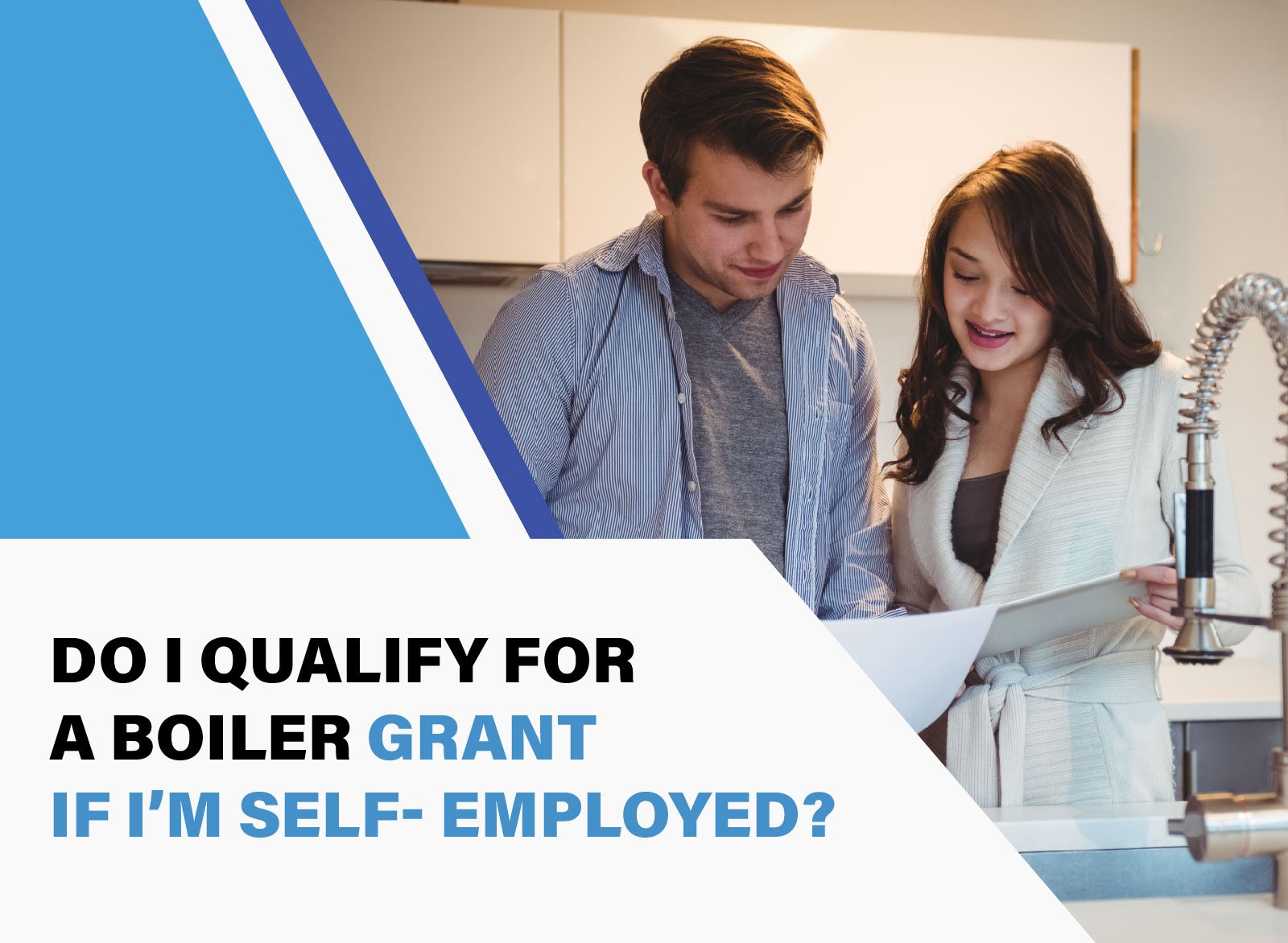
If you’re self-employed and wondering whether you qualify for a boiler grant, you’re not alone. The UK government operates different energy-saving programs including the ECO (Energy Company Obligation) grant that provides assistance for low-income families to enhance energy efficiency. The eligibility requirements for boiler grants depend on your income status, benefits receipt, and the type of property you own, and the current heating system installed. Self-employment does not automatically bar you from receiving a boiler grant yet you must show evidence of your income alongside meeting the required eligibility standards. This guide explains how self-employed people can obtain funding while providing details about their applications and strategies to boost their approval potential. The grant options provide valuable information to freelancers and contractors and small business owners who want to lower heating expenses and decrease their environmental impact.
Eligibility Criteria for Self-Employed Individuals
Self-employed people who want a boiler grant must fulfill various conditions to become eligible for this funding. The eligibility determination depends on four main factors, including income amount and benefit status together with property ownership and boiler condition. Self-employed job seekers need to show their earnings through tax returns or self-assessment records because they lack standard payslips. Properties must fulfill particular requirements before applicants can qualify for a grant, and they need to show evidence of inefficient or broken boilers. The correct documentation, combined with full compliance to grant conditions, will boost the likelihood of approval.
Income Threshold for Qualification
Self-employed individuals must demonstrate that their income meets the requirements set by government authorities or grant organizations. Self-employed applicants need to show their income through tax records and self-assessment forms and bank statements because they lack regular payslips which salaried employees have. Approval eligibility depends on household composition and expenses together with other relevant factors. People with varying incomes can demonstrate their eligibility through proof of lower-income periods even though high income might disqualify them. Successful boiler grant applications require applicants to present their financial records in an accurate and transparent manner.
Your eligibility for a boiler grant can be improved through various benefits.
People who receive specific government benefits will improve their opportunities to obtain a boiler grant. Grant providers evaluate applications by considering financial need information from Universal Credit, Pension Credit, Income Support, and Jobseeker’s Allowance. People who are self-employed and earn above the standard threshold can still qualify for benefits by receiving benefits. The grant assessment process includes evaluation of child benefits and housing support benefits. The application process requires checking grant requirements, along with providing documented evidence of benefits to improve chances of approval.
Property Requirements for the Grant
A boiler grant program does not extend to all types of properties. The grant program extends its coverage to privately owned homes along with rented properties, when landlords agree to the installation and selected housing association accommodations. The grant eligibility depends on what type of home you have, since flats and terraced houses, and detached homes follow separate requirements. The grant program requires properties to possess outdated boilers that need replacement. New-build homes, together with properties that received heating upgrades within the recent past, will not receive grant approval. The process of checking property eligibility in advance, together with landlord approval for renters, helps avoid application delays.
Existing Boiler Condition Assessment
Properties with inefficient or old or broken boilers can qualify for the grant when they need an upgrade. A boiler that exceeds ten years in age or fails to meet current energy standards will have better chances of qualifying for the grant. An engineer must inspect the boiler to verify its condition before the grant approval becomes possible. Applicants who possess working but outdated boilers need to verify if their equipment fulfills the necessary energy efficiency standards. The application process becomes faster when applicants provide complete information about their boiler’s age, together with its model and efficiency rating.
Additional Requirements for Self-Employed Applicants
Self-employed people need to present additional documentation beyond what salaried employees need to submit. Self-employed individuals who do not receive standard employment contracts and payslips need to present self-assessment tax returns and business records alongside invoices and bank statements to prove their income. The application process requires evidence of address, together with proof of property ownership and benefit receipts. The grant provider asks some applicants to present financial records that demonstrate their earnings during the previous 12 months. The preparation of all required documentation before applying will simplify the grant application process while improving the likelihood of approval.
How to Apply for a Boiler Grant as a Self-Employed Individual
Self-employed individuals who want to obtain a boiler grant must complete several essential procedures, which start with eligibility verification and end with the installation process. The initial step requires self-employed individuals to verify their eligibility using authorized websites operated by the government or grant distribution organizations. After eligibility verification, applicants need to collect necessary documents, which include evidence of income and tax records and property specifications. The selection of an accredited installer becomes vital because only authorized companies can perform grant-funded installations. The application proceeds to the authority or energy company, which performs the review process. After approval, the installer evaluates the property before installing the new boiler without any installation costs.
Checking Your Eligibility Online
The simplest method to check eligibility is through an online eligibility checker. Several government websites, together with energy provider websites, allow users to complete quick assessments which require basic information about income and benefits and property type. The screening tools help determine if a candidate meets requirements which allows for time-saving before beginning a complete application process. The online check does not serve as final approval because more document verification steps are required after passing the initial assessment. People who fail to obtain funding through one program should explore other available grants and funding possibilities.
Gathering Required Documentation
A successful application requires applicants to prepare all necessary documentation. Self-employed applicants need to show their income through tax returns (SA302) together with bank statements and business invoices. The applicant needs to show evidence of owning their property or present their rental agreement documents. The applicant needs to submit official letters or payment statements when they receive government benefits. The application process might face delays or result in rejection when applicants provide incorrect or incomplete documents thus it becomes essential to review documents before submission.
Choosing a Certified Installer
To obtain a boiler grant you need to hire engineers who are approved by the government for installation work that meets all safety and efficiency requirements. To find suitable installers applicants must look for accredited professionals with grant installation experience in their local area. Grant providers either select the installation professional after application approval or let applicants select from provided lists of professionals. The process of selecting a trustworthy service provider becomes easier through review analysis and multiple quote requests.
Submitting Your Application
The application procedure requires completing an online form or getting in touch with authorized grant providers. The application process requires users to provide personal information together with their income data and property characteristics and boiler assessment. After application submission the grant provider conducts a review of documents while potentially needing extra information from the applicant. The duration of processing depends on various factors yet continuous communication with the provider helps speed up the response.
Waiting for Approval and Installation
After application approval the installer will check that the property meets requirements for a new boiler installation. The installer evaluates the current heating system before selecting an optimal replacement model and setting up the installation date. The installation process requires several weeks because of both funding availability and demand levels. The new boiler undergoes testing to confirm its efficiency level which must comply with current energy-saving regulations.
Benefits of Getting a Boiler Grant
Self-employed homeowners should consider boiler grants because they provide multiple benefits which enhance home energy efficiency. The installation of a modern energy-efficient boiler system enables substantial cost savings for heating expenses while providing better home comfort. The new boilers deliver dependable heat while decreasing carbon emissions which helps protect the environment. A new boiler installation enhances property value which attracts potential buyers and renters to the property. The grant program provides complete financial support for both boiler purchase and installation costs because it covers all expenses for qualifying participants.
Lower Energy Bills
A boiler grant provides the major benefit of reducing energy expenses through its installation. New boilers operate with high energy efficiency standards which enables them to use less fuel to produce equivalent heating output. You will get better heat performance in your home while spending less on energy expenses. Heating costs become unnecessarily high because older boilers waste energy through their inefficient operation. The installation of a new boiler instead of an outdated model allows you to achieve substantial yearly savings. The accumulated savings from this grant program create a financially advantageous decision for both homeowners and tenants.
Improved Home Comfort
A new boiler system creates better home comfort through its steady and efficient heating performance. The heating system of older equipment experiences difficulty in maintaining stable temperatures which produces uneven heat distribution and temperature instability. Modern boilers deliver heat in a uniform way so every area of your house maintains comfortable temperatures. Advanced boiler models include smart thermostats which enable remote heating control through their user-friendly features. The upgrade eliminates your need to handle an unreliable heating system which creates a more comfortable living environment particularly when temperatures drop. The grant program enables eligible applicants to obtain this improvement without paying much or any costs.
Reduced Carbon Footprint
Modern boilers serve as essential tools for decreasing carbon pollution while protecting our environment. Boilers from previous decades use fuel inefficiently which results in elevated carbon dioxide emissions. The use of contemporary boilers enables large-scale emission reductions which support both environmental sustainability and future ecological progress. Modern boiler models achieve the same heat levels using less fuel which results in lower energy consumption. A boiler grant enables you to choose an eco-friendly heating system while eliminating financial strain so you help your home and protect the environment.
Increased Property Value
The installation of a new boiler creates property value appreciation which improves market appeal for both buyers and tenants. A house with an old heating system that wastes energy will scare potential buyers because they must estimate the expenses for repairs or replacement. A property equipped with an energy-efficient boiler receives recognition as a long-term investment that produces minimal maintenance expenses. A modern boiler provides future homeowners and tenants with a valuable feature when you decide to sell or rent your property. Through the grant you can receive a new heating system at no cost which enhances your home’s market value.
No Upfront Costs for Eligible Applicants
Eligible recipients can obtain boiler grants that pay for both the new boiler equipment and installation expenses. Through this program self-employed workers and families earning low incomes can obtain modern heating systems at no cost to them. The expense of heating system replacements typically exceeds thousands of pounds. The government-backed grant allows you to obtain a more reliable and cost-effective boiler at no upfront expense. The scheme provides a perfect opportunity to people who face expensive energy costs or need an upgrade of their heating system.
Common Challenges & How to Overcome Them
The boiler grant application process offers financial relief but it brings certain obstacles that may appear throughout the procedure. The application process for boiler grants faces common problems such as proving income to authorities and delayed applications and restricted funding alongside difficulties in finding approved installers and denied applications. Understanding the potential obstacles ahead of time enables you to create a plan that enhances your likelihood of achieving a successful application process. The combination of proper documentation and early application submission and expert consultation will help you successfully address these challenges. Applicants encounter various problems during the application process yet they can address these issues through the following strategies.
Difficulty in Proving Income
Self-employed people encounter difficulties showing their income levels to boiler grant agencies during their application process. Self-employed applicants must present tax returns (SA302) and business invoices together with bank statements as proof of income since they lack access to standard payslip documentation. Some grant providers need applicants to show their income records from a particular time frame. To support your application you should organize your financial documents through an accountant if you lack clear records. Regular monitoring of your financial records will simplify your boiler grant application and increase your chances of getting approved.
The process of speeding up application delays includes the following steps.
The application process gets delayed because of absent documents and heavy application volume and system processing delays. Your application will not experience delays if you prepare all necessary documentation before submission. Check twice for accuracy of all required documents including proof of income and benefit receipts and property ownership documents and boiler condition reports. The process of obtaining funding through a trustworthy grant provider becomes faster when you maintain regular contact with them for updates. Contact your provider about any missing information to expedite the application process when it takes longer than expected.
Limited Funding Availability
The funding for boiler grants follows a first-come-first-served system which results in available funds being exhausted rapidly. Waiting to submit your application might result in losing the chance to get a free or subsidized boiler. You should verify grant availability right away and submit your application without delay to prevent this issue. You should subscribe to energy provider and government website updates about funding availability so you can apply right when new grants become available. The search for different funding alternatives along with financial options represents a sound approach.
Finding an Approved Installer
The process of finding an approved professional to perform grant-funded boiler replacements becomes difficult because only certified installers can perform these installations. The scheme includes lists of approved installers which can be found on both government websites and energy company websites. Review multiple providers through research and review reading and quote comparison to select the most suitable option. Before starting the installation process verify that your assigned installer holds proper credentials when they come from the grant provider. The accreditation of your installer protects you from both workmanship problems and grant approval complications.
Dealing with a Denied Application
Understanding the reason for your boiler grant application denial remains crucial after receiving the rejection. The application gets denied because of three main reasons: failing to meet income requirements and missing essential paperwork and living in properties that do not qualify for the program. When you get a rejection notice from the program ask for further details and verify if you can submit extra evidence to fight the decision. Other government schemes and energy-saving programs might be available to you in some circumstances. The search for affordable heating system upgrades includes exploring both low-interest loans and cashback incentives as potential funding alternatives.
Alternative Heating Grants & Funding for eligible Homeowners.
Several funding options exist for homeowners who do not receive boiler grants or need extra support to improve their home heating systems. Homeowners and tenants can access funding through government schemes and private energy company programs and low-interest loans and charitable grants to enhance their home energy efficiency. The available funding options differ according to specific eligibility standards and coverage terms and financial support amounts. Multiple funding options will help you discover the most cost-effective solution for upgrading your heating system.
Other Government Schemes for Energy Efficiency
The government provides various programs in addition to boiler grants, which help homeowners improve their energy efficiency. The Green Homes Grant (which operated in previous years) distributed vouchers to homeowners who wanted to improve their heating systems and insulation, thus decreasing their energy usage. Through Local Authority Flex funding, councils help residents who fail to qualify for the strict requirements of national assistance programs. These programs target two goals by improving home temperatures and reducing both energy usage and utility costs. The identification of available schemes in your area becomes possible through checking both local government websites and energy-saving portals.
ECO4 Scheme and How It Differs
The ECO4 scheme functions as a government-supported initiative that extends funding to multiple energy efficiency enhancements that surpass boiler replacement work. The ECO4 scheme differs from standard boiler grants because it funds both home insulation projects and renewable heating systems, and additional carbon reduction measures. The program directs its benefits toward disadvantaged families and enhances their homes’ energy efficiency to reduce heating expenses over time. The ECO4 scheme functions as an alternative funding source for heating system upgrades when you fail to meet eligibility requirements for boiler-specific grants, while simultaneously providing insulation and ventilation improvements.
Private Energy Company Initiatives
The majority of energy providers operate grant programs that support their customers in improving their home energy efficiency. Private energy companies extend support to government schemes through supplementary funding and reduced prices for heating system modernization. British Gas, together with EDF and E.ON ,previously operated insulation programs and provided energy-efficient boiler replacements and smart thermostat installations to their customers. Your energy supplier can help you determine if you meet the requirements for special discounts or financial aid programs that enhance your home heating efficiency.
Low-Interest Loans for Home Upgrades
People who fail to qualify for government grants can benefit from low-interest loans that the government supports. Low-interest loans enable homeowners to upgrade their heating systems by providing financial support that avoids the burden of high-interest debt. The Green Deal program enables homeowners to pay for their loans through reduced heating expenses, which offset the cost of the loan. People need to evaluate loan conditions together with payment plans and qualification standards before selecting a sustainable financial solution.
Charitable Grants for Vulnerable Households
Non-profit organizations, together with charities,s offer financial assistance to help vulnerable people improve their home heating systems. Nonprofit organizations distribute grants specifically for elderly residents and people with disabilities and low-income families who need help with heating expenses. The organizations NEA (National Energy Action) and Turn2Us provide assistance for energy efficiency improvements, which include heating system replacement projects. The application process for charitable funding serves as a valuable alternative funding source, which enables those in need to obtain help for their home heating and energy efficiency needs.
Secure Affordable Heating: Apply for Your Boiler Grant Today
The current moment presents a perfect opportunity for self-employed individuals who face expensive energy bills because of their old boilers to seek assistance. Through the government-supported boiler grant scheme, you can obtain a modern energy-efficient heating system without paying much or anything at all. Today’s application leads to reduced heating expenses and better home comfort,t and lower carbon emissions in your home. The application process begins with checking your eligibility online, followed by document collection and submission to an approved provider. The funding runs out quickly because providers distribute it according to when applications arrive. The first step to obtain a warmer home with more affordable heating starts with your immediate application.
FAQs
Self-employed individuals can access boiler grants under the right eligibility criteria.
Self-employed people who fulfill income requirements and benefit receipt or annual income below specified thresholds can qualify for grants.
What documentation will prove my eligibility for the grant while applying as self-employed?
Your application requires documentation such as tax returns and bank statements, and proof of income to validate your application.
My property type influences the eligibility criteria for receiving the grant.
The grant program extends coverage to both privately owned properties and those that are rented when they contain inefficient boiler systems.
Can landlords obtain boiler grant funding to benefit their tenant residents?
The property must fulfill eligibility criteria for landlords to submit applications on behalf of their tenants.
The application duration depends on various factors.
The application process spans several weeks, starting from when the application gets approved until the installation takes place.
The boiler grant comes without any cost to the recipient.
The grant provides complete funding to eligible applicants, although partial funding might be available under certain circumstances.
What will I do if my application is denied?
Additional proof allows you to reapply or you can investigate other government schemes for assistance.
Which organizations provide boiler grant applications?
The application process for boiler grants exists through both government-approved energy providers and boiler grant schemes which operate online.
Eligibility Criteria for Free Boiler Grants
Can low-income households get a free boiler?
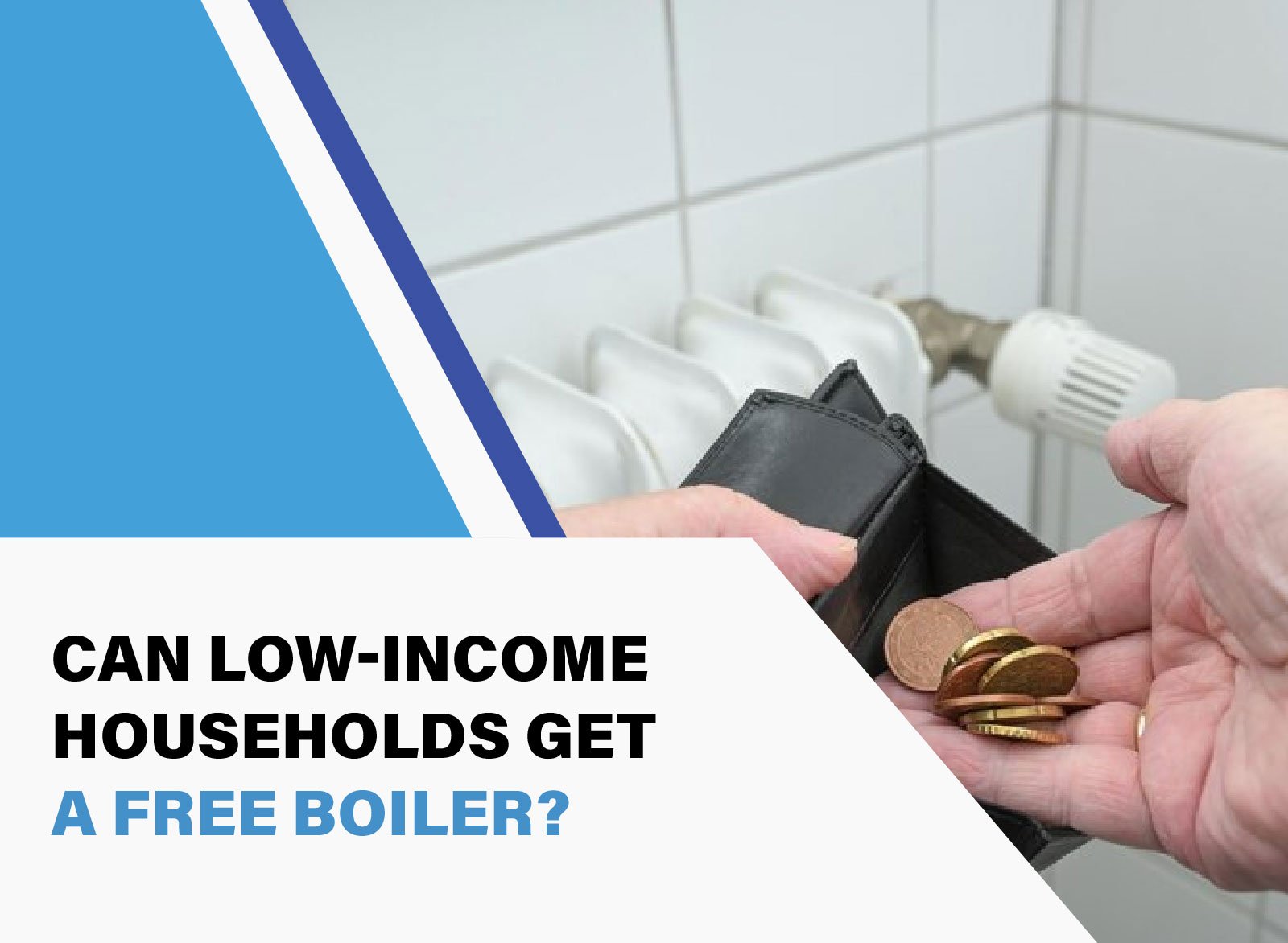
Many low-income households in the UK struggle with high energy bills due to inefficient heating systems. The ECO4 scheme operates through government backing to offer cost-free or highly discounted boiler replacement services to qualified individuals. These schemes work to enhance energy efficiency while decreasing carbon emissions, while helping vulnerable homes.
The selection process for free boiler programs depends on income levels, benefit receipt, and property classification. The government provides free energy-efficient boilers to qualified recipients who receive financial benefits and reduced heating expenses along with warm home comfort. The process of understanding both requirements and applications will help you obtain this benefit. This guide provides information about free boiler eligibility requirements and application procedures, together with program benefits.
Eligibility Criteria for a Free Boiler
The ECO4 government scheme, along with other similar programs, requires specific qualifications for applicants who want a free boiler installation. The eligibility requirements for a free boiler consist of financial qualifications and proper property conditions, along with minimum boiler efficiency standards. The eligibility criteria enable low-income families to understand their replacement options between free and subsidized programs, which results in better heating efficiency and reduced energy costs. A proper understanding of eligibility criteria helps applicants achieve better approval rates. Programs supported by the government work to deliver enduring heating solutions to vulnerable populations.
Income-Based Qualification
People who receive particular income-based benefits can obtain free boiler installation services. The program accepts Universal Credit together with Pension Credit and Income Support, and income-based Jobseeker’s Allowance as eligible benefits. These programs serve the purpose of helping people meet their heating costs. The specified benefits recipients qualify for free boiler installations that boost heating efficiency and reduce utility bills through an income-based assessment. The criteria system focuses on helping families and individuals who struggle financially because of their energy costs.
Property Requirements
The scheme accepts homeowners as participants unless their private tenants obtain consent from their landlords to join. A property must contain a boiler that either does not work or operates inefficiently and does not satisfy current energy efficiency requirements. Social housing alongside council properties cannot enter the program unless their Energy Performance Certificate (EPC) ratings reach certain minimum standards. The verification process for property eligibility enables both applicants and administrators to speed up their application processing while ensuring the scheme benefits only properties that truly need improvements. Property checks serve as necessary steps to confirm eligibility before boiler installation takes place.
The Age of the Boiler System and Its Current State
A boiler replacement program needs your existing boiler to be at least ten years old or to fail the current energy efficiency standards. Boilers that have been in use for a long period need increased energy consumption to function, which leads to higher utility costs and greater carbon emissions. A modern energy-efficient boiler system will reduce heating costs while improving efficiency ratings to create both comfort and environmental benefits in your living space. The main goal is to replace inefficient boilers that waste excessive energy. Heating systems that are outdated and inefficient require immediate replacement as their costliness makes them the most critical priority.
Energy Performance Certificate (EPC) Ratings
An Energy Performance Certificate evaluates properties based on their energy efficiency ratings. The government operates free boiler replacement programs which focus on properties with EPC ratings E, F, or G. The EPC ratings reveal that the building needs better insulation and consumes substantial energy. Homeowners who fall under these categories need to switch to energy-efficient boilers since it result in major energy savings together with environmental advantages. Properties with low EPC ratings demonstrate high energy usage and inadequate insulation. The replacement of heating systems enables properties to fulfill contemporary energy efficiency criteria.
Regional and Supplier-Specific Criteria
Local councils and particular energy suppliers operate separate eligibility criteria for free boiler grants. Free boiler grants depend on the funding choices of individual suppliers as well as the particular location where the property is situated. You can verify the particular conditions for free boiler installation through accredited ECO scheme providers operating in your local area. Your chance to get a quick, free boiler installation becomes stronger when you use a provider approved for this work. Each supplier and local council might provide different grant amounts. Local provider requirements must be checked to verify that applicants fulfill every prerequisite before they submit their applications.
Benefits of Getting a Free Boiler
Free boiler grants deliver financial benefits and environmental advantages to low-income households. Modern energy-efficient boilers operate with lower fuel consumption, thus decreasing both energy expenses and environmental emissions. Eligible households receive enhanced heating performance and extended energy cost savings through the installation of new boiler models, which are supported by government heating solutions that benefit both individuals and the nation through energy savings. Modern boiler installations help achieve sustainability goals that promote long-term energy efficiency.
Lower Energy Bills
A new energy-efficient boiler system provides the greatest benefit through reduced heating expenses. Boilers that are more than ten years of age waste substantial energy that drives up household utility costs. Modern boiler installations improve fuel efficiency, so gas consumption decreases. The transition to contemporary boilers results in annual savings of hundreds of pounds that produce substantial financial benefits for families. Families can redirect their saved money toward necessary expenses. The decrease in heating expenses through financial relief creates better long-term housing affordability.
Improved Energy Efficiency
Modern boilers reach their highest possible energy efficiency through their ability to distribute heat evenly throughout all areas of a house. Modern boilers surpass older models through their implementation of modern technology to achieve better efficiency ratings. The enhanced energy efficiency enables households to generate equivalent heat levels using less fuel, thus maximizing their entire energy efficiency system. The combination of stable heating conditions and reduced fuel usage leads to lower carbon emission levels for households.
Enhanced Home Comfort
A new boiler system helps homeowners achieve better heating temperature control and distributes heat evenly throughout the home. Old boilers struggle to maintain uniform indoor temperatures, which leads to temperature fluctuations throughout the house. Getting a new boiler enables householders to enjoy superior heating performance which creates cozy living areas, especially during cold winter months. Better heating performance through heating grants enhances the living quality of households, while better heating control creates a more comfortable home environment. The uniform heating system maintains a comfortable climate inside homes throughout the winter season.
Reduced Carbon Footprint
Modern energy-efficient boilers produce lower carbon emissions than traditional heating systems do when installed. These systems operate efficiently while consuming less fuel, which makes them effective at creating cleaner air quality. These systems contribute to lower carbon emissions, which help achieve the sustainability goals of the UK government. The government provides financial incentives to homeowners who join eco-friendly boiler programs, which simultaneously protects the environment. A decrease in carbon emissions through reduced footprint helps fight climate change. The implementation of energy-efficient heating systems helps build a sustainable future because they decrease household emissions.
No Upfront Costs
Government grants cover all expenses related to boiler installation and purchase for eligible homeowners who do not need to pay anything upfront. The program makes it simple for low-income families to replace their outdated heating systems because it removes financial obstacles. This scheme provides cost-free, energy-efficient homes to families who do not need to spend money on expensive boiler upgrades because the installation process is completely free. The program enables families to improve their heating equipment without financial obstacles.
How to Apply for a Free Boiler
The government-backed scheme for free boiler acquisition includes a step-by-step process starting with eligibility evaluation and finishing with the installation phase. Free boiler applications need proper procedures from both homeowners and private tenants to achieve successful completion. The simplified steps for free boiler applications result in successful applications that cause minimal problems. The process of obtaining a free boiler leads to enhanced heating efficiency and reduced energy expenses. Knowing the application process before starting helps applicants prevent unnecessary delays and complications.
Check Your Eligibility
Before starting your application, you must verify that you satisfy all scheme eligibility criteria. The program needs applicants to fulfill both financial criteria and property standards, and their current boiler needs to be operational. Early eligibility assessments help applicants avoid unproductive paperwork tasks, which allows them to focus on obtaining efficient boiler replacements. Eligibility requirements change based on the current government rules and policy changes. An official scheme provider can provide answers about all qualifications and requirements.
Find a Registered Installer
Candidates must choose an ECO scheme provider from the government-approved list to conduct their necessary evaluations. Accredited installers help organizations meet regulatory standards while guaranteeing their installations achieve their intended energy efficiency targets. The selection of a reliable provider represents the primary requirement for achieving premium installation quality and smooth installation execution. The government approves installers because they possess both training and certification to perform safe and effective installation work. Before working with an installer, you should verify their credentials to protect yourself from fraudulent activities and substandard work.
Submit Your Application
The applicant must finish the official application form after confirming their eligibility. The application procedure exists as an internet-based process and an installer-assisted process. The application process needs proof of benefits alongside property ownership details and information about the existing boiler system. The speed of approval increases, and application delays decrease when you submit accurate information during your application. The application process becomes smoother when accurate documentation is provided, which also reduces the chances of rejection. Before sending their application,n candidates must verify that all necessary paperwork is complete to avoid avoidable errors.
Home Survey and Assessment
The application process results in assessment visits where the assessor confirms eligibility. The survey determines the best boiler system through its evaluation of residential heating needs. The assessment confirms that the new boiler satisfies property specifications and meets all energy efficiency standards before builders start construction work to determine if more energy-saving solutions can be added. During the evaluation, homeowners need to communicate their heating system requirements and existing system problems to the assessment team.
Boiler Installation Process
The professional engineer will perform the new boiler installation following approval from the authorities. Installation time extends between one to two days, although the actual duration depends on the complexity of the replacement system. The final inspection checks both proper boiler operation and compliance with energy efficiency standards. The new heating performance, together with energy savings, starts working for homeowners immediately after their boiler installation is finished. Regular maintenance following installation helps extend the boiler lifespan and maximize performance. Homeowners need to request information about servicing schedules and warranty details from their installers to guarantee long-term boiler efficiency.
Common Challenges and How to Overcome Them
Three primary barriers exist in free boiler government scheme applications, including rejected applications and delayed processing times, and misinformation among the public. Your understanding of standard application issues, along with proven solution,s will increase your chances of application success. The likelihood of obtaining a free boiler through government schemes depends on your preparedness and your ability to stay informed about the application process.
Application Rejection
The primary difficulty for free boiler applicants arises from their inability to fulfill the application criteria and supply adequate documentation. After the denial of your application, you must review the requirements to submit the necessary evidence, which includes both income verification and property documentation. You should contact an approved installer or scheme provider to check your eligibility,y since they can assist you with the approval process.
Limited Availability of Grants
The restricted funding of free boiler grants determines how applications get processed through a first-come, first-served order. The exhaustion of funding requires you to either wait for fresh funding distributions or explore alternative support options. The success rate of your free boiler grant application improves when you submit it immediately. The timing for taking action becomes clear through government notices about funding availability.
Delays in Installation
The installation process experiences delays after approval because of supply chain issues combined with scheduling conflicts and rising system-wide demand. Your selected installer’s regular updates, along with scheduled timeline checks, help minimize waiting periods. Contact your installer to find alternative solutions if installation delays surpass standard waiting periods to obtain quick boiler installation.
Landlord Permission Issues
To get a free boiler grant under the scheme, private tenants must obtain written consent from their landlord. Installation costs, together with property modifications, lead certain landlords to postpone their approval process. Demonstrate to landlords that boiler grants with no cost will give them enduring advantages by reducing utility bills and increasing property’s worth to gain their consent. Official scheme information provided to landlords will help them understand the beneficial nature of the installation.
Misleading Information from Installers
Some unverified companies provide inaccurate details about their service eligibility requirements and their pricing system and installation timeframes. Check all ECO4 information through official government websites and registered installer networks. Eligible applicants should not send money to installers prior to scheme commencement since legitimate schemes never need beneficiary financial contributions.
Types of Boilers Available Under the Scheme
The ECO4 scheme presents multiple choices of energy-efficient boilers that serve different property needs. The choice of boiler depends on the house size, together with heating needs and available fuel types. The selection process for household boilers becomes simpler when applicants understand boiler system features because this knowledge helps them optimize heating performance and minimize heating expenses.
This scheme provides homeowners with an opportunity to switch to energy-efficient boilers, which promotes sustainable home heating practices. The installation of these systems allows homeowners to reduce their carbon emissions while creating more comfortable living conditions.
Combi Boilers
People often select Combi (combination) boilers because these units help conserve space within their residences. The units provide instant hot water and heating service without needing any storage tank for individual use. These boilers function optimally in small homes since they eliminate the need for hot water cylinders. Combi boilers offer homeowners two benefits: reduced heating costs and minimized energy loss. These boilers fit perfectly into small living spaces because of their compact dimensions. The quick heating system of these boilers eliminates the need for extended waiting times to access hot water.
System Boilers
System boilers provide their best performance when used in large homes that have several bathrooms because they can supply hot water to multiple taps at once. A system boiler needs hot water storage but does not need a cold water tank. Households demanding large amounts of hot water should choose these boilers because they provide both high water storage capabilities and energy-efficient operation. The boilers keep water temperature stable, which produces continuous flow during times of high demand. These boilers provide practical benefits to homes seeking both convenient operation and reduced energy expenses.
Conventional Boilers
Regular boilers function as conventional boilers to deliver optimal performance in properties with existing radiator systems. The two essential components of these boilers include a hot water cylinder and a cold water storage tank to work with older heating systems. A boiler system functions optimally for households with large family sizes who require ongoing hot water availability during multiple simultaneous uses. These boilers deliver exceptional results in every situation because they work best with low water pressure systems. These boilers provide excellent performance for heating systems that depend on ga ravity-fed water supply.
Condensing Boilers
The ECO4 scheme chooses condensing models as primary new boiler installations because they provide maximum energy efficiency. The boilers employ their design to capture heat losses from typical models, thus creating environmental advantages. Condensing boilers help homeowners decrease their energy costs through their reduced carbon emissions and improved fuel efficiency, thus supporting sustainable environmental practices.
Fuel Types Available
Most ECO4 scheme boiler installations use gas-powered units, yet alternative fuel types become available depending on property characteristics and location. The ECO4 scheme offers oil, LPG, or electric boilers to properties that lack access to gas mains in rural areas. Your home heating needs will determine which fuel type a registered installer will recommend for your system.
Start Your Application for a Free Boiler Right Now
Take advantage of the ECO4 scheme to receive a free boiler installation. You can easily apply for this program if you qualify for it, which might result in reduced energy costs and improved home heating. Contact an accredited installer at present to verify your eligibility and begin your application journey. Take advantage of the program before all available funding disappears.
FAQs About Free Boiler Grants
Under the scheme, which individuals qualify to receive a free boiler?
Households that get Pension Credit, Universal Credit, or Income Support benefits are eligible for free boiler programs. The eligibility for free boiler grants depends on homeownership status, property condition, and energy efficiency rating.
Do homeowners need to apply for free boiler grants?
The main recipients of free boiler grants are homeowners, although private tenants may apply when their landlord gives permission. Housing association and Council tenants typically do not qualify for the program.
How long does the application process take?
The application duration spans from 2–6 weeks based on how many applications exist and survey scheduling requirements.
Does the installation process require any financial contribution from me?
The boiler installation becomes free when you satisfy all program requirements. A small payment might be needed for specific cases.
Which boiler type will I receive as part of the program?
You will get a contemporary boiler that is energy-efficient and usually comes as a condensing or combi model according to your house requirements.
Can I apply for the program even though my boiler currently functions properly?
You can apply for the scheme if your current boiler has reached ten years of age or if an assessor declares it inefficient.
What happens if my application is denied?
You should consult another provider while considering different funding options and reapply if your situation changes.
Is the scheme available in all parts of the UK?
Most areas participate in the ECO scheme, yet the availability levels differ from one place to another. Local providers maintain specific information about the scheme.
Eligibility Criteria for Free Boiler Grants
What benefits qualify for a free boiler grant?
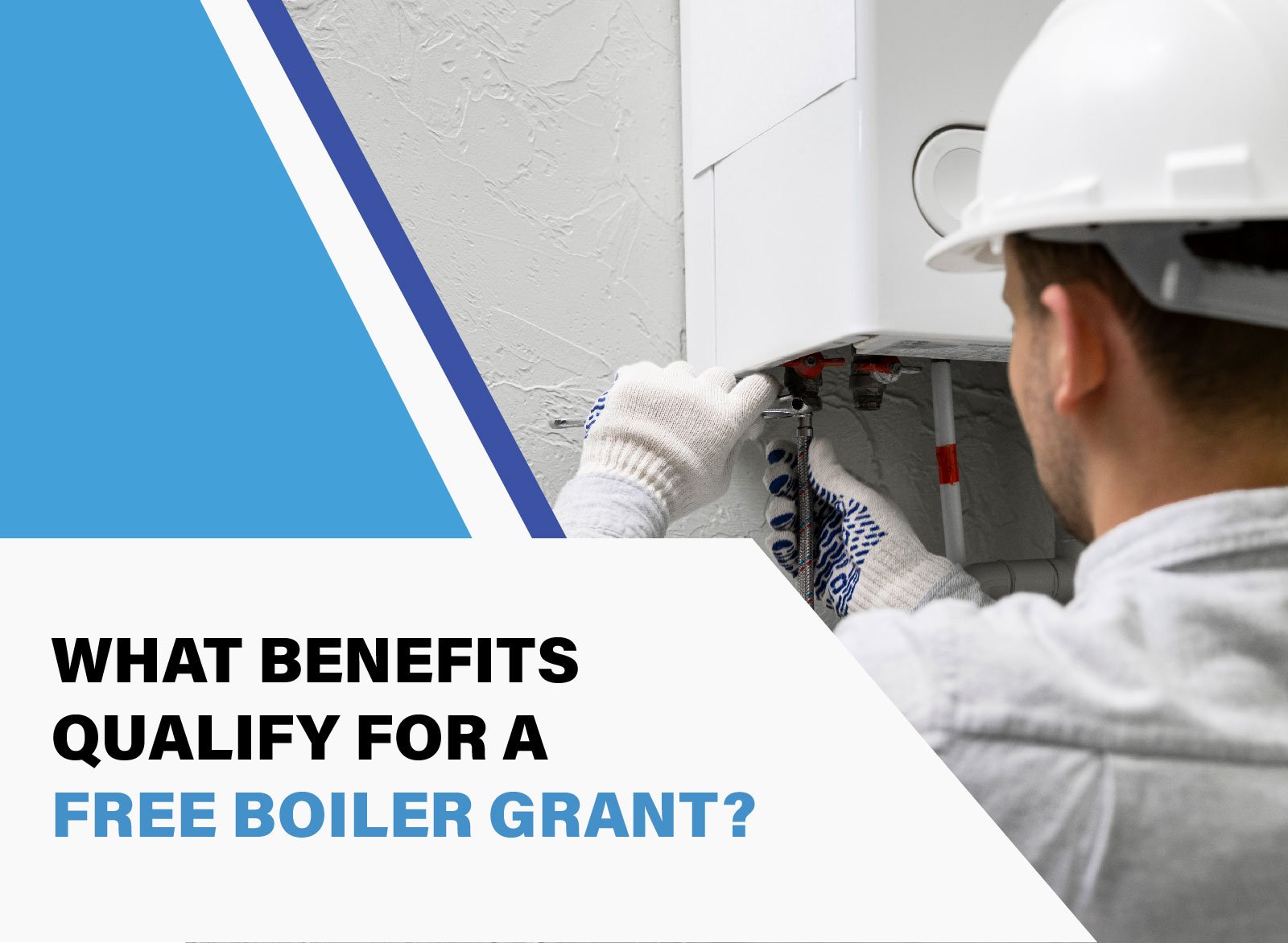
The ECO (Energy Company Obligation) scheme from the UK government enables eligible households to obtain free or discounted boiler replacements. The grant works to decrease energy expenses while lowering carbon emissions and enhancing heating efficiency in homes of low-income and vulnerable families. The eligibility requirement for free boiler grants depends on your participation in Universal Credit or Pension Credit government benefits. The assessment of your home’s energy efficiency rating, together with its boiler condition, determines your eligibility for the grant. An accredited installer will perform the boiler replacement for free or at no cost to eligible recipients. The guide explains what benefits qualify you for assistance, along with application steps and essential points to consider. The following text explains how you can verify eligibility for a free boiler grant that leads to a more efficient and warmer home environment.
Understanding the Boiler Grant Scheme
Through the Energy Company Obligation (ECO) program, the government supports low-income families to acquire new, efficient boilers. The major UK energy suppliers finance this scheme to reduce carbon emissions while providing lower heating expenses and better home temperatures. The grant program offers full boiler replacement funding to qualified applicants, although it may require them to contribute a small amount of money. The scheme works to maintain sustainable and cost-effective heating by encouraging energy efficiency. The program requires applicants to fulfill particular requirements before they can access funding through the program.
What Is the ECO Boiler Grant?
The Energy Company Obligation (ECO) operates as a UK government-supported program that provides funding for low-income families to acquire energy-efficient boilers. The financial support program of the scheme allows eligible homeowners and tenants to access energy-efficient heating systems that minimize their energy costs while reducing environmental impact and improving their home comfort. The program guarantees vital support to people who need help with their heating expenses. The program plays a major role in helping the government achieve its carbon footprint reduction targets by promoting contemporary energy solutions.
Who Funds the Boiler Grant?
Major UK energy suppliers must contribute to the ECO scheme because they need to improve residential property energy efficiency according to legal requirements. Through their financial support, the suppliers enable low-income families to obtain modern, efficient boilers, which decrease their power usage and environmental impact. The energy suppliers meet their governmental obligations by making financial payments. The program enables suppliers to build an energy-aware society and support financially challenged individuals.
Why Is the Scheme Important?
Through its boiler grant scheme, the government supports three essential goals: carbon emission reduction, affordable energy bills, and enhanced living conditions for vulnerable individuals. The initiative gives families and elderly individuals modern energy-efficient boilers to combat fuel poverty and access affordable heating rates that support UK sustainability goals. The scheme operates as a key component of environmental protection efforts that support the nation’s future energy plans.
What Costs Are Covered?
The ECO grant fully covers boiler expenses for homeowners who need to make a small payment before receiving the funds. The grant amount depends on both household income and boiler condition and property type. Through financial program support, people who require essential home heating system replacements receive assistance with their initial costs, although they need to understand any remaining expenses. The program requires minimal payments to provide necessary upgrades that support both recipient’s needs and program longevity.
Who Can Apply for the Grant?
Homeowners and specific private tenants who receive qualifying government benefits can participate in the scheme. The ECO scheme establishes eligibility by conducting income evaluations and boiler efficiency tests, and other specified requirements. Private tenants need their landlords’ consent before applying for grants to confirm property owners support energy-efficient property improvements. The eligibility screening process protects assistance from reaching people who do not require it the most. The established requirements ensure both fairness and optimal performance of the scheme.
Benefits That Qualify You for a Free Boiler
Households receiving Universal Credit or Pension Credit can obtain free boiler replacement benefits from the government. The ECO scheme uses both income testing and inspections of heating equipment and property classification to establish eligibility. The support system gives energy-efficient solutions to vulnerable families and individuals who need them to cut heating costs and improve home comfort, and advance overall energy efficiency while protecting disadvantaged households from cold months. Through its eligibility criteria, the grant program promotes responsible energy usage among its recipients.
Universal Credit
The program provides free boiler replacements to Universal Credit recipients who fulfill the income requirements. The benefit gives financial support to low-income families and individuals to purchase energy-efficient heating solutions that improve home warmth and decrease energy consumption to help them manage their expenses better. Universal Credit recipients obtain substantial savings through the program, which enables them to handle their monthly costs effectively. Through this initiative, vulnerable families can maintain suitable living environments.
Pension Credit (Guarantee Credit)
People who receive Pension Credit (Guarantee Credit) as pensioners qualify automatically for a boiler grant. Through the program, senior citizens receive help with installing energy-efficient modern boilers to reduce their energy costs. The grant delivers monetary support to pensioners because their income is often restricted, thus helping them afford heating for their homes. The scheme focuses on pensioners to guarantee that elderly people receive protection against cold weather conditions. The reduced heating expenses enable pensioners to allocate their funds toward other necessary expenses.
Income-Related Jobseeker’s Allowance (JSA)
The free boiler installation service is available to individuals receiving income-based Jobseeker’s Allowance (JSA). The program supports unemployed persons who encounter financial troubles by offering help to reduce their heating expenses. Energy-efficient boiler replacements of outdated, inefficient units enable recipients to better manage their utility expenses as they search for employment. A warm living environment creates stability and comfort for people who are seeking employment. The grant provides financial relief to people who need help reaching their goal of independence.
Income-Related Employment & Support Allowance (ESA)
People who get income-related Employment and Support Allowance (ESA) can obtain free boiler grants if they meet the established income criteria. The benefit provides health-related financial assistance to disabled individuals who cannot work to help them acquire free energy-efficient heating systems. The support system provides new boilers at no cost to people with health conditions because these systems reduce energy bills and enhance home comfort. The program enables people to get necessary home heating improvements without creating financial difficulties.
Child Tax Credit (Low-Income Households)
The boiler replacement grant program exists to assist families who receive Child Tax Credit benefits and earn limited amounts of money. The support system preserves homes with children by keeping them energy-efficient and warm, so their heating expenses decrease. The boiler replacement program under this scheme protects vulnerable families by enabling them to use their resources for essential needs because new, efficient boilers reduce their energy costs. The cost-saving advantages of the scheme help reduce financial burdens on families who are facing difficulties.
Additional Eligibility Factors
The three essential requirements for boiler grant eligibility consist of income criteria, property status, and boiler system maintenance condition. The scheme picks properties with low Energy Performance Certificate ratings and properties that have either inefficient or non-functional boilers as its first step. Rental properties and flats need landlord permission to get new heating systems, which must follow specific insulation and heating system regulations before applicants can proceed. The knowledge of essential factors leads to smoother approval procedures.
Household Income Limits
All applicants must pass income requirements to receive benefits, even when they qualify for them. The government sets specific financial limits to decide which recipients will receive funding support. The funding distribution mechanism first serves households with lower incomes who qualify for either complete or partial grants based on their requirements. The assessment process determines which households need help the most. The grant allocation system focuses on distributing funds according to financial equity standards and support requirements.
Home Ownership Status
The ECO scheme delivers its greatest advantages to homeowners since they maintain full control over their property improvements. Private tenants need their landlords to approve their applications before they can proceed with ECO scheme participation. Social housing tenants need to meet requirements that their local authority defines independently. The scheme enables landlords to enhance their rental properties to achieve energy efficiency targets. The ability to own a home is a vital factor for determining eligibility. Potential applicants need to check their property requirements before starting the application process.
Existing Boiler Condition
The grant program uses its funds to replace outdated boilers but does not support the purchase of advanced models. The program starts by targeting old boilers that meet certain age requirements, possess low efficiency ratings, and cannot be economically repaired. The funding distribution system identifies properties that require maximum benefits from energy-efficient heating system replacements. The program achieves its maximum impact by focusing on replacing only boilers that demonstrate the worst efficiency. The focused strategy enhances energy preservation while delivering sustainable financial benefits to homeowners in the long run.
Energy Performance Certificate (EPC) Rating
Properties with low Energy Performance Certificate ratings make up the priority list for receiving boiler grants. The government requires properties with poor Energy Performance Certificate ratings to enhance their energy efficiency standards. A home improvement that enhances the EPC rating results in decreased utility expenses, increased property value, and better living quality. A property improvement that raises its EPC rating reduces energy costs while simultaneously boosting home efficiency. A better EPC rating creates potential for future energy-saving benefits and financial grants.
Property Type Considerations
The boiler grant application process contains particular restrictions that affect properties, including flats, rented accommodations, and listed buildings. A free boiler grant depends on meeting building regulations, ensuring heating system compatibility, and meeting insulation standards. Understanding these considerations helps applicants determine their qualification status and follow the necessary application steps to continue. Knowledge about property restrictions helps prevent people from being disqualified unexpectedly. The application process helps prospective applicants prepare properly before starting their application.
How to Apply for a Free Boiler Grant
The boiler grant application system operates as a simple process to help eligible homeowners get energy-efficient heating systems at no expense. The guidelines for application lead to obtaining free heating system upgrades through a grant program. The following guide demonstrates the complete process to obtain free boiler grants. The application process should be efficient to deliver grants to eligible applicants without delays. Knowledge about every necessary step in advance makes the entire process easier to handle.
Check Your Eligibility Online
You should begin your application process by checking your eligibility through an online tool. You need to share details about your financial condition, your government benefit status, and your home ownership. The system uses the provided factors to determine your eligibility for the grant. The application process verifies candidates through their eligibility criteria to proceed with their application. The online eligibility check both reduces application duration and prevents applicants from filling out unnecessary paperwork. The first step of the process eliminates applicants who do not fulfill the established requirements.
Provide Necessary Documents
The system requires verification documents from you after confirming your eligibility. The system needs applicants to submit government benefit statements, income statements, and property ownership records. The approval process requires exact documentation to verify your application. The application speed increases when applicants submit their documents in advance, preventing unnecessary delays from occurring. Proper documentation submission speeds up the processing period while improving your chances of approval. Inaccurate or missing paperwork creates two problems: it causes applications to be denied and results in extended processing times.
Arrange a Boiler Inspection
Your home boiler requires an inspection by a professional installer who will confirm whether it needs replacement. The evaluation process checks three main aspects of the boiler: assessing its age, efficiency, and general condition. The heating requirement evaluation performed by the installer helps determine which energy-efficient replacement system will deliver the most grant benefits. Timely scheduling of inspections speeds up the overall process. The evaluation process guarantees that the new boiler installation will fulfill all necessary efficiency requirements and safety standards.
Receive Grant Approval
The review process for your application starts after the inspection phase ends. The assessment will confirm your boiler grant approval when it shows that everything is accurate. The following step demands that you arrange an appointment with a provider who holds accreditation through the program. The program provides you with professional installation of new energy-efficient boilers without charging you any fees. Grant approval serves as the concluding requirement before new installation begins. After approval, applicants must work with their selected provider to establish smooth installation procedures that will happen without delay.
Boiler Installation Process
The boiler installation process starts with boiler removal before the installation of an energy-efficient system takes place. Professionals who hold boiler installation certification will execute the work to ensure safety standards and optimal operational output. The complete installation period spans from morning until afternoon without creating major interruptions for your household. The installation process creates improved heating performance while reducing energy costs. The replacement of an old boiler system brings both long-term operational reliability and decreased maintenance expenses. The newest heating technologies that homeowners install provide better energy efficiency and enhanced comfort levels.
Advantages of Getting a Boiler Grant
A boiler grant provides financial aid and directs users toward better heating system choices. A boiler upgrade process generates several advantages that combine reduced costs with better comfort, reduced environmental impact, and increased property value. The free program of boiler grants delivers multiple benefits to its recipients. The implementation of a boiler grant allows you to acquire sustainable heating technology that is environmentally friendly. A modern system transition delivers enduring energy efficiency benefits and enhances home market value.
Reduced Energy Bills
Users can save fuel costs by installing contemporary boilers without compromising their heating system stability. The reduction in energy consumption leads to dramatically lower utility expenses. Your household budget will benefit from substantial savings because heating costs decrease over time. The financial benefits of efficient boiler systems extend over time because they reduce operating expenses even though you avoid a big initial investment. The reduced heat loss capability of energy-efficient boilers helps decrease fuel usage. The money saved on reduced utility bills can be used to cover important household expenses.
Improved Home Heating Efficiency
Your home will receive dependable heating all the time because modern boilers operate with superior efficiency. Modern boilers distribute heat evenly to create better indoor comfort by eliminating temperature differences throughout the space. Modern technology integration allows these devices to maintain stable temperature control while using less energy for heating purposes, which creates a comfortable living space. A well-functioning heating system enhances the quality of indoor air in your home. Smart temperature controls enable users to optimize heating settings for better convenience.
Environmental Benefits
Your household benefits from lower environmental impact because an energy-efficient boiler system replacement reduces carbon emissions. New boilers consume less fuel for equivalent heat output, minimizing heat loss during operation. The adoption of energy-efficient boilers creates a sustainable future since it reduces our reliance on fossil fuels. Through the grant program, you can choose an environmentally friendly heating system that provides excellent heat performance.
Increased Property Value
The installation of an energy-efficient boiler leads to a higher market value for your home because it enhances its energy rating. Properties in the market gain higher value when they show improved energy efficiency. The market favors contemporary heating systems because they combine high efficiency and low operating costs. Your real estate property gains enduring value through the investment made in boiler replacement.
No Upfront Costs
Homeowners benefit significantly from the boiler grant scheme because it provides free installation costs, eliminating the need to spend large initial expenses. The program provides perfect solutions to those who need new boilers but cannot afford to buy them independently. The program provides modern heating systems at no initial cost to users.
Upgrade Your Home Heating for Free!
The program offers free boiler grants to suitable applicants. You should take advantage of this program to enhance your home heating efficiency while reducing your energy expenses. Verify your eligibility immediately to start your journey toward a more comfortable home environment. You can submit your application today to get a simple boiler replacement process.
FAQs
What criteria determine eligibility for receiving a free boiler grant?
The eligibility requirements for free boiler grants exist for people who get government benefits, including Universal Credit, Pension Credit, and Child Tax Credit. The program accepts applications from homeowners as well as private tenants.
Is there any financial requirement for me to meet?
A small contribution might be needed from certain applicants, but most people get their entire boiler replacement paid by the program.
Is there an option for landlords to obtain boiler grants?
No, landlords cannot apply directly. Private tenants who receive qualifying benefits can qualify for a boiler grant if their landlords approve their application.
How long does the application process take?
The application process requires several weeks to complete, from starting the application until the installation of the boiler.
What kind of boiler system will be provided to me?
The ECO scheme provides you with an energy-efficient gas boiler that fulfills its standards. The specific boiler model depends on the requirements of your home.
Can I apply for the program even if my boiler continues to function properly?
The ECO scheme only provides funding for inefficient or nonfunctional boilers. The scheme will not accept applications for new functional boilers.
Will the installation cause disruption?
Installation professionals need one day to perform the work which minimizes home disruptions.
What if I don’t qualify?
The energy-saving schemes have alternative options for those who do not qualify for the insulation program through the Energy Company Obligation.
-

 General Information on Free Boiler Grants11 months ago
General Information on Free Boiler Grants11 months agoHow much funding can I get for a new boiler?
-

 General Information on Free Boiler Grants11 months ago
General Information on Free Boiler Grants11 months agoWhat is the Government’s Free Boiler Replacement Scheme?
-

 General Information on Free Boiler Grants11 months ago
General Information on Free Boiler Grants11 months agoWho Qualifies for a Free Boiler Grant in the UK?
-

 General Information on Free Boiler Grants9 months ago
General Information on Free Boiler Grants9 months agoWhat are free boiler grants in the UK?
-
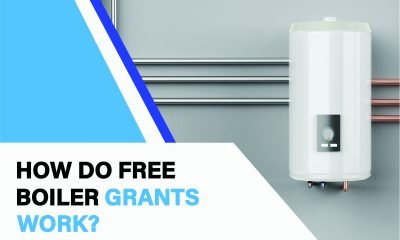
 General Information on Free Boiler Grants10 months ago
General Information on Free Boiler Grants10 months agoHow Do Free Boiler Grants Work?
-
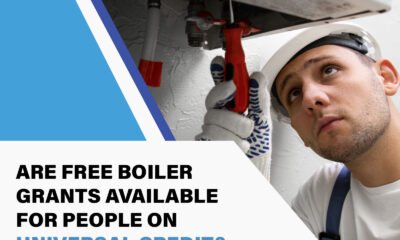
 Eligibility Criteria for Free Boiler Grants8 months ago
Eligibility Criteria for Free Boiler Grants8 months agoAre Free Boiler Grants Available for People on Universal Credit?
-
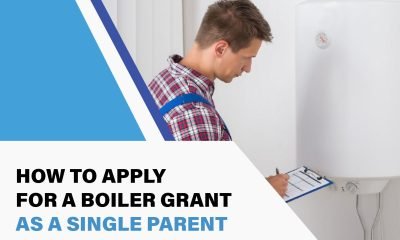
 Eligibility Criteria for Free Boiler Grants8 months ago
Eligibility Criteria for Free Boiler Grants8 months agoHow to apply for a boiler grant as a single parent?
-

 Eligibility Criteria for Free Boiler Grants8 months ago
Eligibility Criteria for Free Boiler Grants8 months agoWhat benefits qualify for a free boiler grant?
